- Home
- James Hadley Chase
1960 - Come Easy, Go Easy Page 7
1960 - Come Easy, Go Easy Read online
Page 7
I sat back on my heels and examined the clutch plates. One of them was cracked. I put the plates in the petrol bath. Then I stood up and walked over to the work bench to pick up a rag to clean my hands.
He was watching me, but I kept my face dead pan and I could see my apparent indifference irritated him.
“Where have you come from, friend?” he asked abruptly, “Are you a stranger in these parts?”
“That’s right.”
“How did you run into Carl?”
“I met him in Little Creek.”
“You did? Looking for work, huh?”
“That’s it.”
“Well . . .” He pushed himself away from the shed door. The dog had been sitting motionless: now it stood up. It looked expectantly at Ricks. “I mustn’t take up your time. I just looked in to borrow some tools. I’ve a little job up at my place that needs fixing. I always borrow what I want from Carl.” He wandered around the shed, staring at the tool racks. “Now, let me see. What do I want?”
He took down two screw drivers and a hammer. He was reaching for a drill when I said, “I’m sorry, Mr. Ricks, but I can’t let you take those tools.”
I saw him stiffen, then he looked sideways at me, his thin face expressionless.
“What was that, friend?”
“I haven’t Mr. Jenson’s permission to let tools go off this place,” I said. “I’m responsible here while he’s away. If you’ll stick around until he comes back and he says it’s okay, then it’ll be okay, but no tools go out of here without his say-so.”
He took the drill out of the rack and then reached for a hand saw.
“Just relax, friend. I’m his brother-in-law. You’re dead right. Anyone else but me shouldn’t borrow anything from here—but me, that’s different.”
I had had enough of this guy.
I walked over to him.
“I’m sorry, Mr. Ricks, no tools go out of here without Mr. Jenson’s say-so.”
He eyed me. I could see a little red glint come into his eyes. The dog, as if sensing trouble, began to back slowly away.
“Now look, friend,” Ricks said, “you don’t want to lose your job this soon, do you? If I tell Carl …”
“Go ahead and tell him,” I said. “Those tools stay here. I’m sorry, but that’s the way it is. If you want them that badly you’ll have to wait until Mr. Jenson comes back and says you can have them.”
“I see.” There was sweat on his face now. He looked suddenly as mean as hell. The dog slunk out of the shed and headed for the car. “So there are two of you here now, is that it? You wouldn’t also be after his money—like that tramp? Maybe she’s letting you into her sack—is that it?”
I felt a rush of blood to my head. I caught hold of his overall and gave him a shake that nearly snapped his head of his shoulders, then I shoved him away from me.
“Get out of here!” I said. “Hear me? Beat it!”
He nearly fell over himself backing away. His face had gone yellow-green under his tan and his eyes popped out of his mean, thin face.
“I’ll fix you for this!” he quavered. “I’ll tell Carl ...”
“Get out!”
He turned and walked fast to his car. The dog was already in it Ricks got into the car, slammed the door and drove off in a cloud of dust.
I was worried. I didn’t know how Jenson would react if Ricks complained. At least I would get my story in first, but I wasn’t going to tell Jenson what Ricks had said about his wife. I was pretty sure Jenson wouldn’t like that pan of it, coming from me.
When they got back around midday and while I was helping Jenson unload the estate wagon, I told him Ricks had been here and had tried to borrow tools.
“I had to get a little rough with him, Mr. Jenson. He wouldn’t take no for an answer. I chased him out. If I did wrong, I’m sorry.”
Jenson grinned at me.
“You did absolutely right. I should have warned you about him. That guy drives me crazy. I won’t let him take a thing off the place. One time I used to, but I never got anything back. He’s the biggest scrounger in the district. When my first wife was alive, he was never off the place. He came in for every meal, filled his car with my gas, borrowed my tools, borrowed money from my wife —he drove me nuts. After I married Lola, she fixed him. I haven’t seen him now for a couple of months, but he’ll turn up again. Don’t let him have a thing if I’m not here.”
I was relieved I hadn’t made a mistake so far as Jenson was concerned, but I had an idea I had made a mistake so far as Ricks was concerned.
I told myself I would have to watch out for him. He could mean trouble for me.
II
Three weeks can seem a long time.
With the sun coming up behind the distant mountain, turning the desolate desert into a crimson wasteland, and as I lay in my bed, looking out of the window, I thought back on the three week I had now been at Point of No Return.
I now had a feeling of security. Farnworth, its stinking bunkhouse and its brutal guards seemed a remote nightmare: something that had never happened. I no longer felt a twinge of fear every time a car came out of the heat haze and pulled up beside the gas pumps. I was fairly certain now that I had become a lost man to the police, and if I continued to stay out here in this lonely place, I would remain safe.
Although Lola still didn’t speak to me unless she could help it she now seemed resigned to me. I still found her disturbing and sensually attractive, but that didn’t mean I even thought about doing anything about it.
I had too much respect and too much liking for Jenson. I had known from the start that he was my kind of people, but as the days went by, and we worked long hours together, I found he was something a lot more than that. He was a man you just had to like: a simple guy with a kindness in his heart that made you react to him unless you were a sonofabitch like George Ricks.
Jenson and I got along fine together. I soon found that although he was crazy about Lola, he yearned for male company. He liked to play gin rummy in the evenings while we waited for the late customer. He liked to talk about his past life and his ambitions, and from what I could see neither of these pastime interested Lola. I played a good game of gin and I was happy to let him talk.
I soon discovered he was shrewd and smart. He had a surprising talent for turning rusty scrap into something he could sell at a profit. He had put the rotary cultivator in order and had sold it to a fanner for a hundred and fifty dollars.
He was like a kid with excitement when he had pulled off the sale.
“That’s a hundred and thirty bucks profit, Jack,” he said, grinning from ear to ear. “That’s what I call a deal.”
Then one night when we had finished a game of gin, and Lola bad gone to bed, and we two were sitting on the veranda of the lunch room, waiting for some trade, he suddenly got confidential.
“Know what I plan to do in a couple of years, Jack?” he said, stretching out his massive legs and getting out his pipe. “I plan to go right around the world. It’ll take three years to do the job properly. When I’m ready, I’m going to sell this place, then me and Lola are going. Right the way around the world, missing nothing. First class all the way: the best hotels, everything arranged and taken care of.”
I stared at him.
“That’s going to cost a whale of a lot of money,” I said.
“Yeah.” He paused to light his pipe, then went on. “I’ve got the price all worked out. It’s going to hit me for sixty thousand bucks. On top of that there’s clothes, drinks and spending money. I reckon it’ll cost at least a hundred thousand. Well, I’ve got it, Jack. I’ve been saving for the past thirty years, and I’ve got it. I want to put by some capital to make a fresh start when I come back. I’ll have what I want in a couple of years, then away we go.”
“You mean you’ve really got a hundred thousand dollars, Mr. Jenson?”
“Yes.” He winked broadly at me. “I’ve got a system, Jack. I wouldn’t tell anyone this, but you
and me are pals, and I know it won’t go any further. For thirty years, I’ve been making nice money out of scrap. It’s just one of those things. I guess I have a talent for it. It has been cash right down the line, and with cash, the tax inspector doesn’t come into it. I’ve kept two sets of books for years. In one of them I’ve logged the gas sales and the lunch room sales: that’s for the tax inspector. In the other book I’ve kept a record of my scrap sales, and that’s for me. That book tells me I’ve cleaned up one hundred thousand bucks.”
“Out of scrap?”
“Yeah. It wouldn’t be anything like that if the money had been taxed, but the way I’ve worked it, the tax man isn’t smelling a dime of it. It’s for Lola and me and the world trip.”
I suddenly remembered what Ricks had said about Lola marrying Jenson for his money.
“Does she know about it?” I asked.
“Sure, she knows about it, but she doesn’t know what I plan to do with it. In another year, when I’m ready to quit, I’ll tell her. It’ll be a real surprise for her. Imagine! A trip around the world!”
On this particular morning, two days after this conversation and three weeks since I had come to Point of No Return, I lay in bed, brooding about Lola.
It was her turn for night shift, and from time to time during the night I had heard trucks pulling up and I had looked out of the window to see her in jeans and a shirt serving gas and talking to the truckers.
Jenson had wanted her to give up the night shift now I was there to help out, but she wouldn’t. She said she liked doing it. She knew most of the truckers, and they liked her. So Jenson reluctantly let her do one shift a week. He did two and I did four.
After one o’clock in the morning the traffic dropped away, and the one on nightshift could then turn in. It was seldom anyone came after that hour, and if they did, there was a night bell to ring.
I watched Lola as she sat in the basket chair on the veranda preparing string beans for the lunch trade. The time was just after six.
I saw the grocery truck coming. It came regularly every morning, bringing the groceries and any special orders from Wentworth. As the driver pulled up outside the lunch room, I tossed off the sheet and got out of bed.
The guy carried the big box of provisions up the steps and into the lunch room, and Lola followed him.
I stretched and yawned, then wandered into the bathroom, was feeling relaxed and pretty good. As I let the cold water from the shower run over me, I thought of Farnworth. I couldn’t help feeling complacent. I had certainly had some luck, but at the same time I had been pretty smart the way I had handled my escape.
But my luck was running out, although I didn’t know it right then. In that box of provisions the guy had just carried into the lunch room was something that was going to blow my complacent and my feeling of security sky high. One of Fate’s little jokes. This day was pay day.
With a roll of money in his big sweating hand, Jenson can lumbering into the shed where I was working after breakfast on the wreck of an outboard motor he had been paid to take away.
“How’s it coming, Jack?” he said, standing over me. “Think you can fix it?”
I looked up and grinned at him.
“Why, sure,” I said. “I’ll get it to work, but I don’t guarantee how long it will last. This one’s a bad one: pretty nearly played out, but I’ll get it to work.”
“Good boy.” He wagged his head at me, “We’ll make a few bucks out of it, huh? I’ve got some dough for you. Forty for the job—right?”
“Yeah.”
“Then there’s the restaurant cut: a hundred and ten.”
“As much as that?”
He laughed.
“Hear the man talk! You’ve sold more lunches and more dinners than we’ve ever sold before. You’re a knock out! Just as a sign of appreciation, I’m giving you another hundred for the scrap you’ve worked on.”
I stared at him.
“I didn’t expect that, Mr. Jenson. After all, this is my job.”
“Now look, Jack, leave this to me. You’re doing all right. It was my lucky day when you came here. Since you’ve been here I’ve made a stack of dough. Take what I’m giving you and shut up.”
“If that’s the way you feel—well, thanks.” I took the bundle of bills he thrust at me. “Now you have me worried. I’m not spending the money I’m earning. I have it all in my cabin. With what you have just given me, I have over five hundred dollars. So what do I do with it? Would you give me an introduction to your bank?”
“My bank?” He laughed, shaking his head. “Who wants to put their money in a bank? Three years ago the Wentworth bank failed. All the guys who had put their savings in that bank went under. I don’t trust banks. I’ve never given any bank a cent of mine. I like it in cash. I like to know if anything happened to me, Lola could put her hands on my money without a lot of talk from the bank. Okay, you have five hundred dollars. I’ll take care of it for you. I have a safe. That’s where I keep my money. I’ll keep yours with mine. Then when you want to spend it, you come to me and you’ll get it in cash. Cash is more important than any bank talk. Never mind about putting the money out at interest. You can lose plenty of money if you’re after interest. One day it’s up, the next day it’s down, and if you want your money quick, you’re always out on the deal. You make a note of what you’ve got. I’ll keep it for you, then any time you want it, you can put your hands on it.”
I stood up, gaping at him.
“You don’t keep your hundred thousand dollars in a safe here, do you?” I said.
“Why, of course I do. Why not? You don’t imagine I’d trust any bank around here to keep that amount of money for me? I’ve a safe that’s really good—the best. A Lawrence safe is the best money can buy. I don’t have to tell you that. You know safes. Isn’t that right? Isn’t a Lawrence safe the best money can buy?”
“Is that what you’ve got?”
“Why, sure. I had a salesman out here some five years He sold me this safe. He was the sincerest salesman I’ve known. Put money in a Lawrence and it’s safe. That’s what told me— that’s the Corporation’s slogan, and a damn good one. He was right, wasn’t he, Jack?”
That sardine can? That box of phoney steel I could open in three minutes?
I looked at his beaming face and I saw how proud he was his judgment. I hadn’t the heart to tell him.
“Why, sure. I know them. They’re the best.”
He reached out and patted my shoulder. I was getting used his pats now, but each time he dropped his great hand on shoulder my knees sagged. He just didn’t know his own strength.
“Okay, then I’ll keep your money for you. Any time you want it . . . just say the word.”
“Well, thanks, Mr. Jenson.”
“Go and get it. I’ll give you a receipt. May as well make it right now. You never know. Keeping it in your cabin’s no good. Who knows? The cabin may burn down.”
So like a dope, I went over to the cabin and took the money I had saved from under my mattress and gave it to him. He gave me a receipt for five hundred and ten dollars.
“I’ll lock it up right away, Jack,” he said, and I could see was as pleased as he could be. “Any time you want it ...”
“Sure,” I said.
He looked at his watch.
“Moving up for twelve. We have the Greyhound bus here half-past. That’ll mean thirty people. Suppose you give Lola a hand? I’ll put your money away, then I’ll take care of the pumps. In half an hour we’re going to be busy.”
“Right,” I said.
I went over to the lunch room and into trouble.
Lola was arranging newly-baked pies in the glass case as walked in. She looked over her shoulder at me.
There was an expression in her green eyes that immediately warned me that something was up.
“Anything I can do to help out?” I said.
She smiled. This was the first time she had smiled at me: jeering smile that started an a
larm bell ringing in my head.
“There’s plenty for you to do, Patmore,” she said. The emphasis she put on the phoney name I had given myself sent up red light. “I’ve unpacked the groceries—suppose you put them away?”
I went into the kitchen. The cans of food, the two dozed chickens in their plastic bags and the rest of the stuff were spread out on two tables.
Lying on the cans of food was a crumpled newspaper that had obviously been used to pack something in. I picked it up. Then my heart gave a violent kick against my side.
Don’t ask me how a Wentworth grocery store had got hold of an Oakland local newspaper. That’s one of the jokes of life, but there it was: the front page of the Oakland Inquirer, and slap on the front page was my photograph with a banner headline:
Escaped Safe Robber Still Free.
I stood motionless, staring at the photograph, feeling cold chills running through me. It wasn’t a good photograph, but good enough, and she had pencilled in my moustache on the photograph to tell me that she knew who I was.
Farnworth, the stinking bunkhouse and the brutal guards suddenly came into focus. They were no longer a remote nightmare.
In the silence of the safe, clean kitchen, I heard the screams of a man in the punishment cell and the hissing crack of the belts as the guards beat him. I saw again the guy who had lost an eye, staggering down the corridor, his shirt and trousers plastered to his back with blood, his hands covering his face.

 Come Easy, Go Easy
Come Easy, Go Easy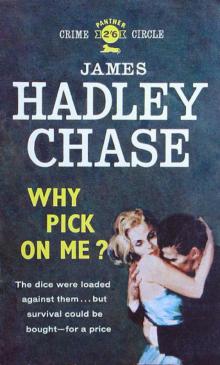 Why Pick On ME?
Why Pick On ME?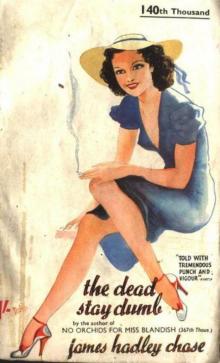 The Dead Stay Dumb
The Dead Stay Dumb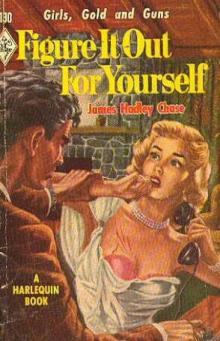 Figure it Out For Yourself
Figure it Out For Yourself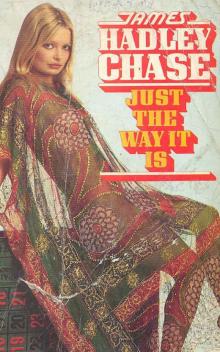 1944 - Just the Way It Is
1944 - Just the Way It Is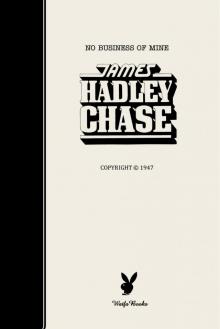 No Business Of Mine
No Business Of Mine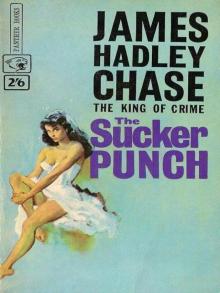 1953 - The Sucker Punch
1953 - The Sucker Punch Cade
Cade 1973 - Have a Change of Scene
1973 - Have a Change of Scene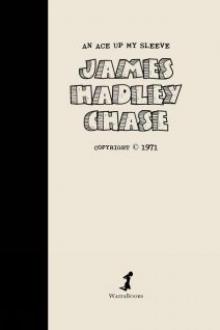 An Ace up my Sleeve
An Ace up my Sleeve 1968-An Ear to the Ground
1968-An Ear to the Ground 1950 - Figure it Out for Yourself
1950 - Figure it Out for Yourself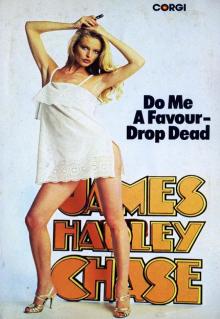 1976 - Do Me a Favour Drop Dead
1976 - Do Me a Favour Drop Dead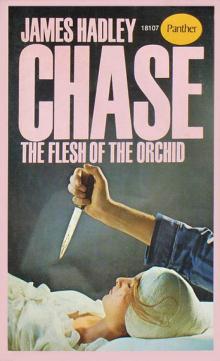 The Flesh of The Orchid
The Flesh of The Orchid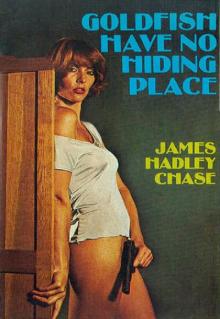 1974 - Goldfish Have No Hiding Place
1974 - Goldfish Have No Hiding Place Whiff of Money
Whiff of Money 1984 - Hit Them Where it Hurts
1984 - Hit Them Where it Hurts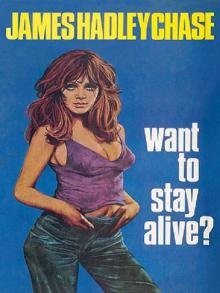 1971 - Want to Stay Alive
1971 - Want to Stay Alive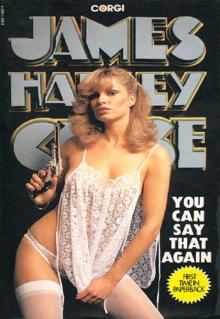 1980 - You Can Say That Again
1980 - You Can Say That Again 1978 - Consider Yourself Dead
1978 - Consider Yourself Dead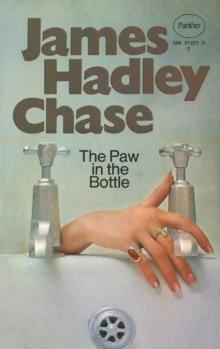 The Paw in The Bottle
The Paw in The Bottle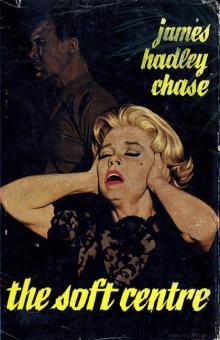 Soft Centre
Soft Centre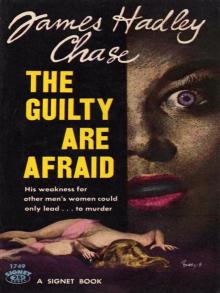 The Guilty Are Afraid
The Guilty Are Afraid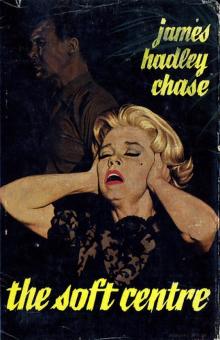 The Soft Centre
The Soft Centre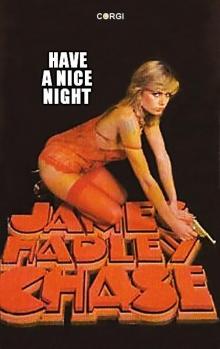 Have a Nice Night
Have a Nice Night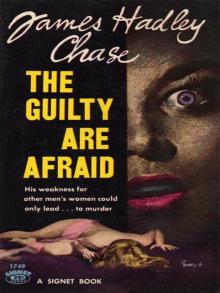 1957 - The Guilty Are Afraid
1957 - The Guilty Are Afraid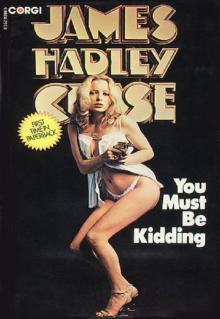 1979 - You Must Be Kidding
1979 - You Must Be Kidding Knock, Knock! Who's There?
Knock, Knock! Who's There?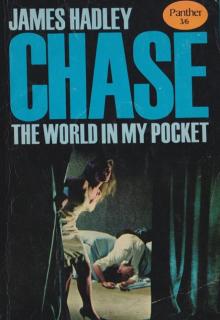 1958 - The World in My Pocket
1958 - The World in My Pocket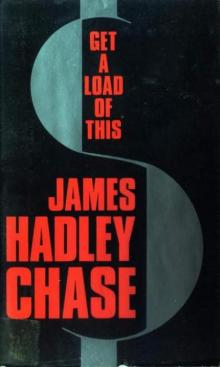 Get a Load of This
Get a Load of This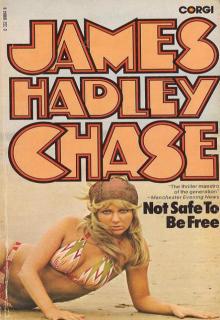 1958 - Not Safe to be Free
1958 - Not Safe to be Free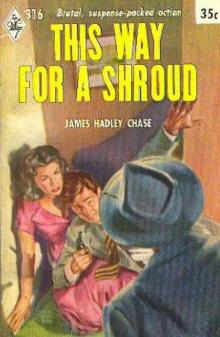 This Way for a Shroud
This Way for a Shroud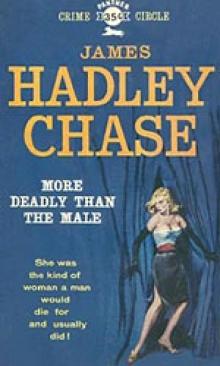 More Deadly Than the Male
More Deadly Than the Male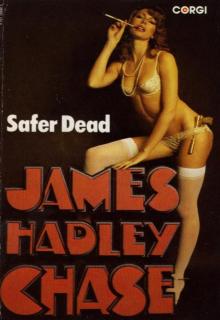 Safer Dead
Safer Dead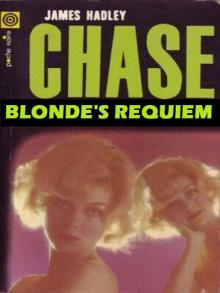 1945 - Blonde's Requiem
1945 - Blonde's Requiem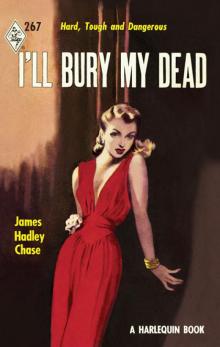 I'll Bury My Dead
I'll Bury My Dead 1975 - The Joker in the Pack
1975 - The Joker in the Pack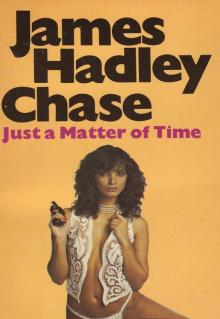 1972 - Just a Matter of Time
1972 - Just a Matter of Time 1954 - Mission to Venice
1954 - Mission to Venice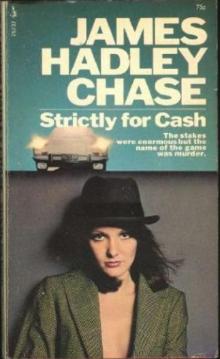 Strictly for Cash
Strictly for Cash A COFFIN FROM HONG KONG
A COFFIN FROM HONG KONG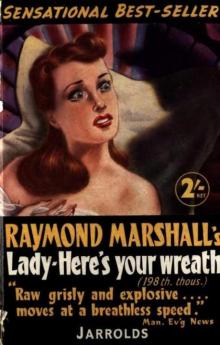 Lady—Here's Your Wreath
Lady—Here's Your Wreath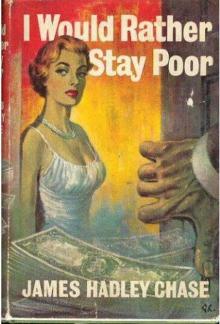 I Would Rather Stay Poor
I Would Rather Stay Poor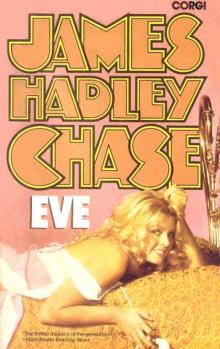 Eve
Eve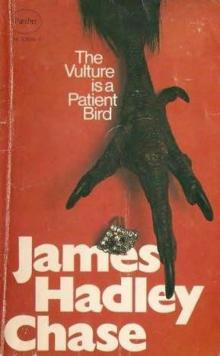 Vulture Is a Patient Bird
Vulture Is a Patient Bird 1979 - A Can of Worms
1979 - A Can of Worms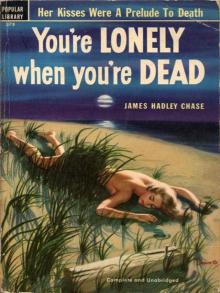 1949 - You're Lonely When You Dead
1949 - You're Lonely When You Dead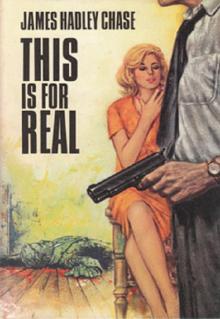 1965 - This is for Real
1965 - This is for Real (1941) Miss Callaghan Comes To Grief
(1941) Miss Callaghan Comes To Grief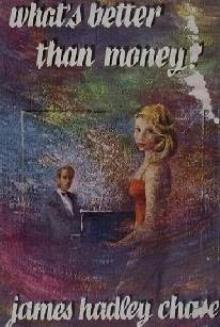 What`s Better Than Money
What`s Better Than Money This is For Real
This is For Real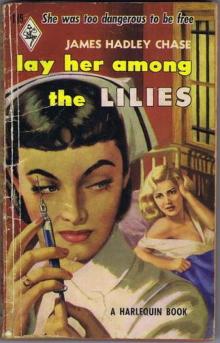 Lay Her Among the Lilies vm-2
Lay Her Among the Lilies vm-2 Knock Knock Whos There
Knock Knock Whos There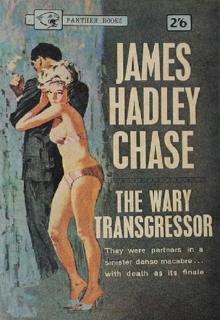 1952 - The Wary Transgressor
1952 - The Wary Transgressor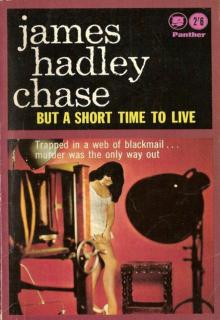 1951 - But a Short Time to Live
1951 - But a Short Time to Live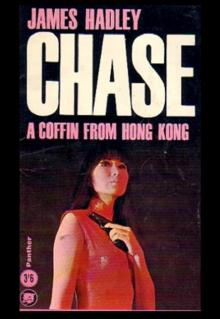 1962 - A Coffin From Hong Kong
1962 - A Coffin From Hong Kong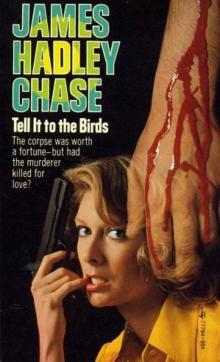 Tell It to the Birds
Tell It to the Birds Well Now, My Pretty…
Well Now, My Pretty…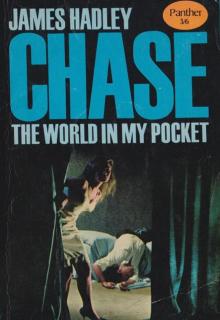 The World in My Pocket
The World in My Pocket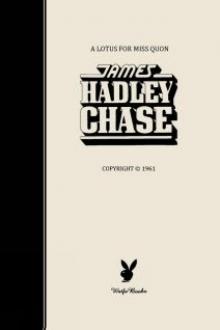 A Lotus for Miss Quon
A Lotus for Miss Quon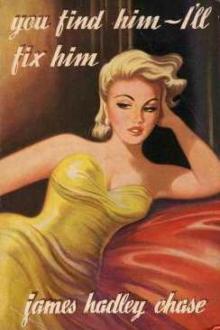 You Find Him, I'll Fix Him
You Find Him, I'll Fix Him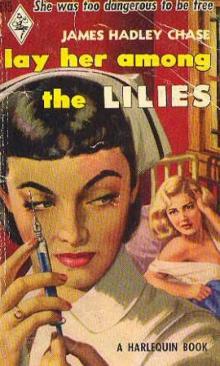 Lay Her Among The Lilies
Lay Her Among The Lilies 1951 - In a Vain Shadow
1951 - In a Vain Shadow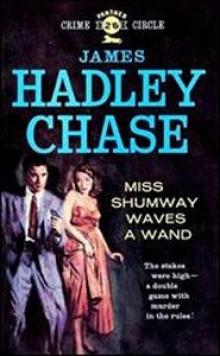 Miss Shumway Waves a Wand
Miss Shumway Waves a Wand 1953 - This Way for a Shroud
1953 - This Way for a Shroud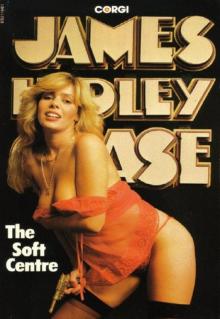 1964 - The Soft Centre
1964 - The Soft Centre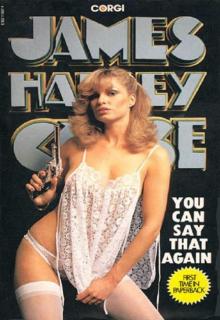 You Can Say That Again
You Can Say That Again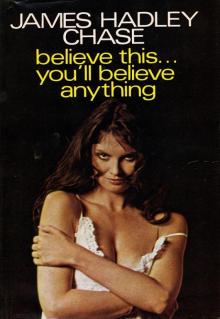 1975 - Believe This You'll Believe Anything
1975 - Believe This You'll Believe Anything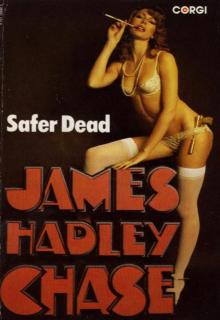 1954 - Safer Dead
1954 - Safer Dead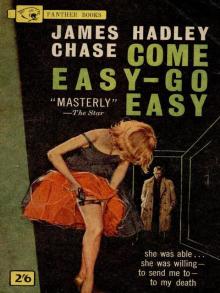 1960 - Come Easy, Go Easy
1960 - Come Easy, Go Easy Shock Treatment
Shock Treatment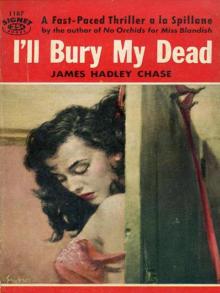 1953 - I'll Bury My Dead
1953 - I'll Bury My Dead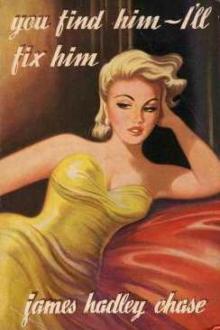 You Find Him – I'll Fix Him
You Find Him – I'll Fix Him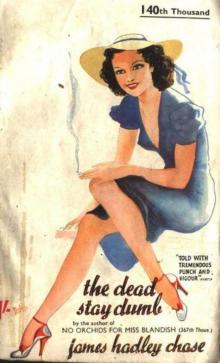 Dead Stay Dumb
Dead Stay Dumb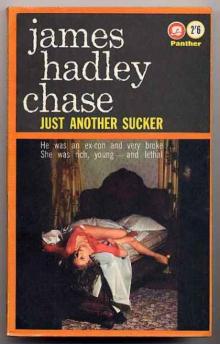 Just Another Sucker
Just Another Sucker Well Now My Pretty
Well Now My Pretty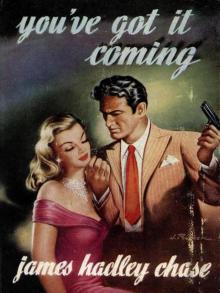 You've Got It Coming
You've Got It Coming 1972 - You're Dead Without Money
1972 - You're Dead Without Money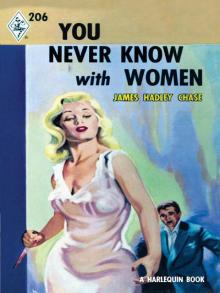 1955 - You Never Know With Women
1955 - You Never Know With Women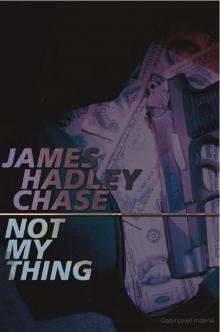 Not My Thing
Not My Thing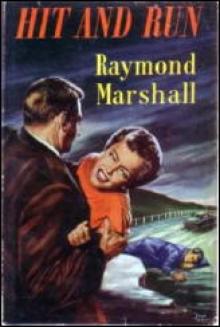 Hit and Run
Hit and Run 1971 - An Ace Up My Sleeve
1971 - An Ace Up My Sleeve 1970 - There's a Hippie on the Highway
1970 - There's a Hippie on the Highway 1968 - An Ear to the Ground
1968 - An Ear to the Ground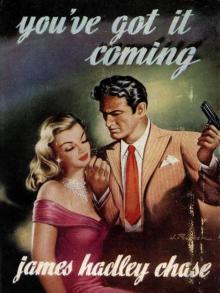 1955 - You've Got It Coming
1955 - You've Got It Coming 1963 - One Bright Summer Morning
1963 - One Bright Summer Morning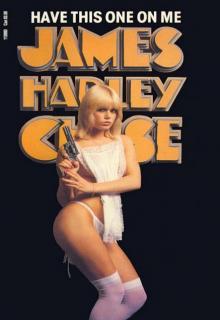 1967 - Have This One on Me
1967 - Have This One on Me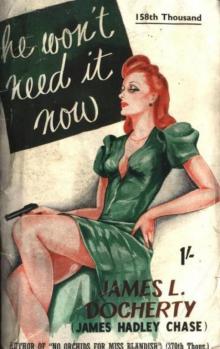 He Won't Need It Now
He Won't Need It Now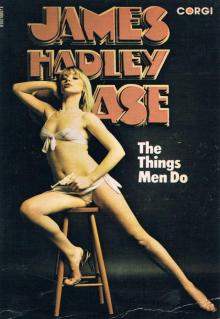 1953 - The Things Men Do
1953 - The Things Men Do Believed Violent
Believed Violent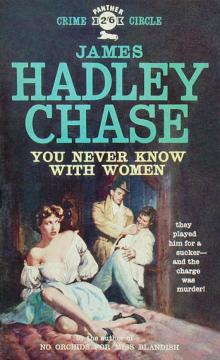 You Never Know With Women
You Never Know With Women Miss Callaghan Comes to Grief
Miss Callaghan Comes to Grief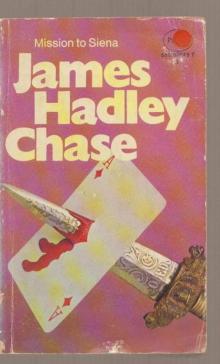 Mission to Siena
Mission to Siena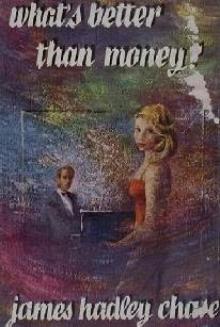 What's Better Than Money
What's Better Than Money Trusted Like The Fox
Trusted Like The Fox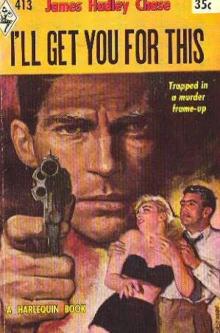 I'll Get You for This
I'll Get You for This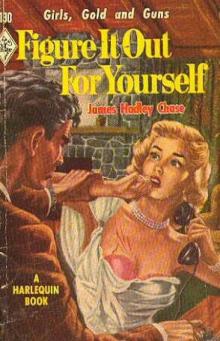 Figure It Out for Yourself vm-3
Figure It Out for Yourself vm-3 Like a Hole in the Head
Like a Hole in the Head 1977 - I Hold the Four Aces
1977 - I Hold the Four Aces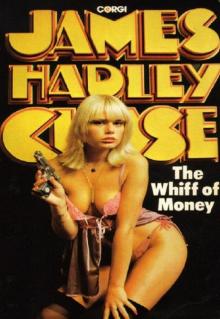 1969 - The Whiff of Money
1969 - The Whiff of Money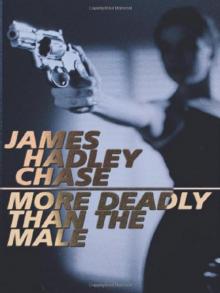 1946 - More Deadly than the Male
1946 - More Deadly than the Male 1956 - There's Always a Price Tag
1956 - There's Always a Price Tag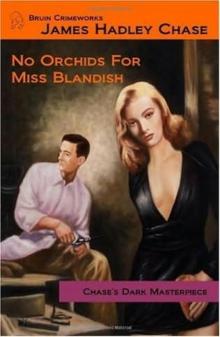 No Orchids for Miss Blandish
No Orchids for Miss Blandish 1977 - My Laugh Comes Last
1977 - My Laugh Comes Last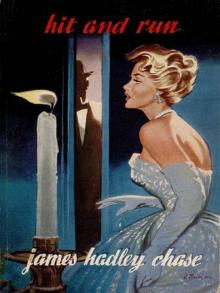 1958 - Hit and Run
1958 - Hit and Run 1981 - Hand Me a Fig Leaf
1981 - Hand Me a Fig Leaf 1966 - You Have Yourself a Deal
1966 - You Have Yourself a Deal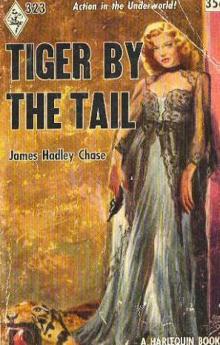 Tiger by the Tail
Tiger by the Tail